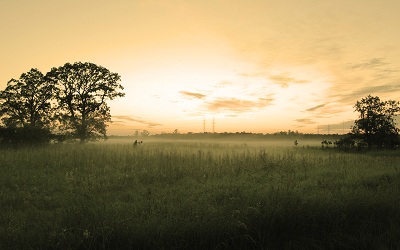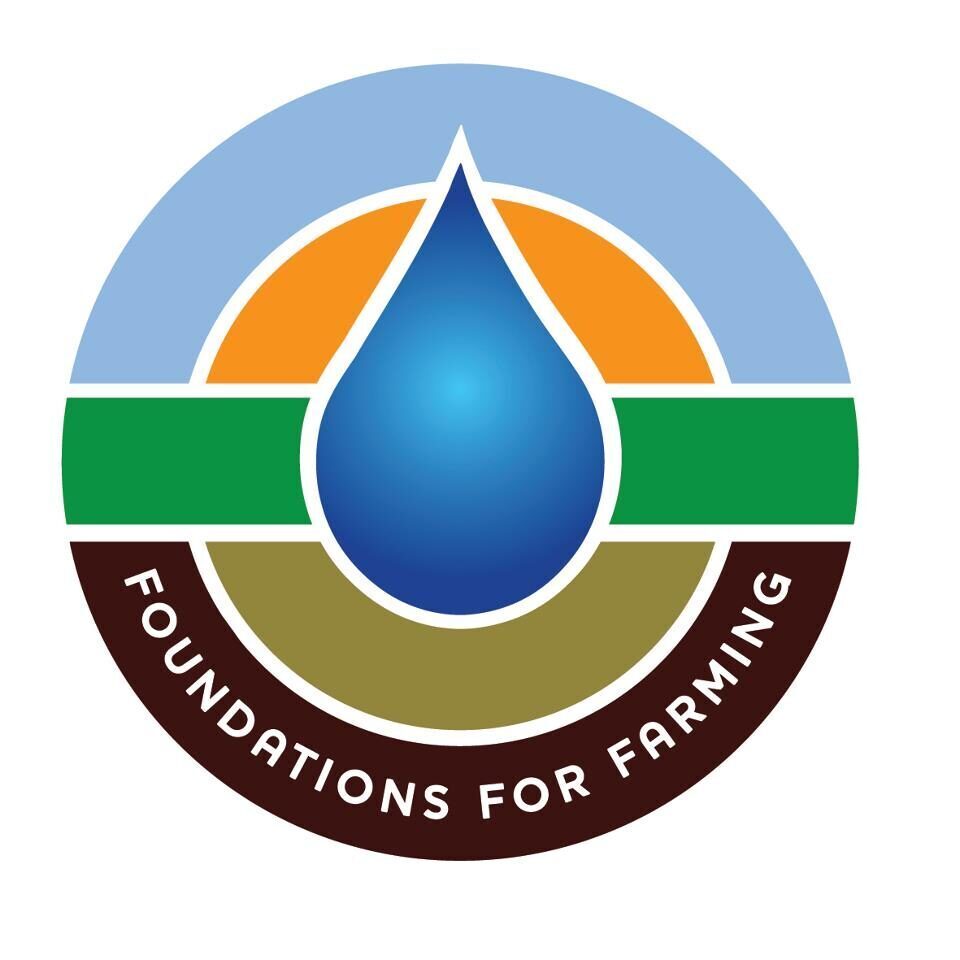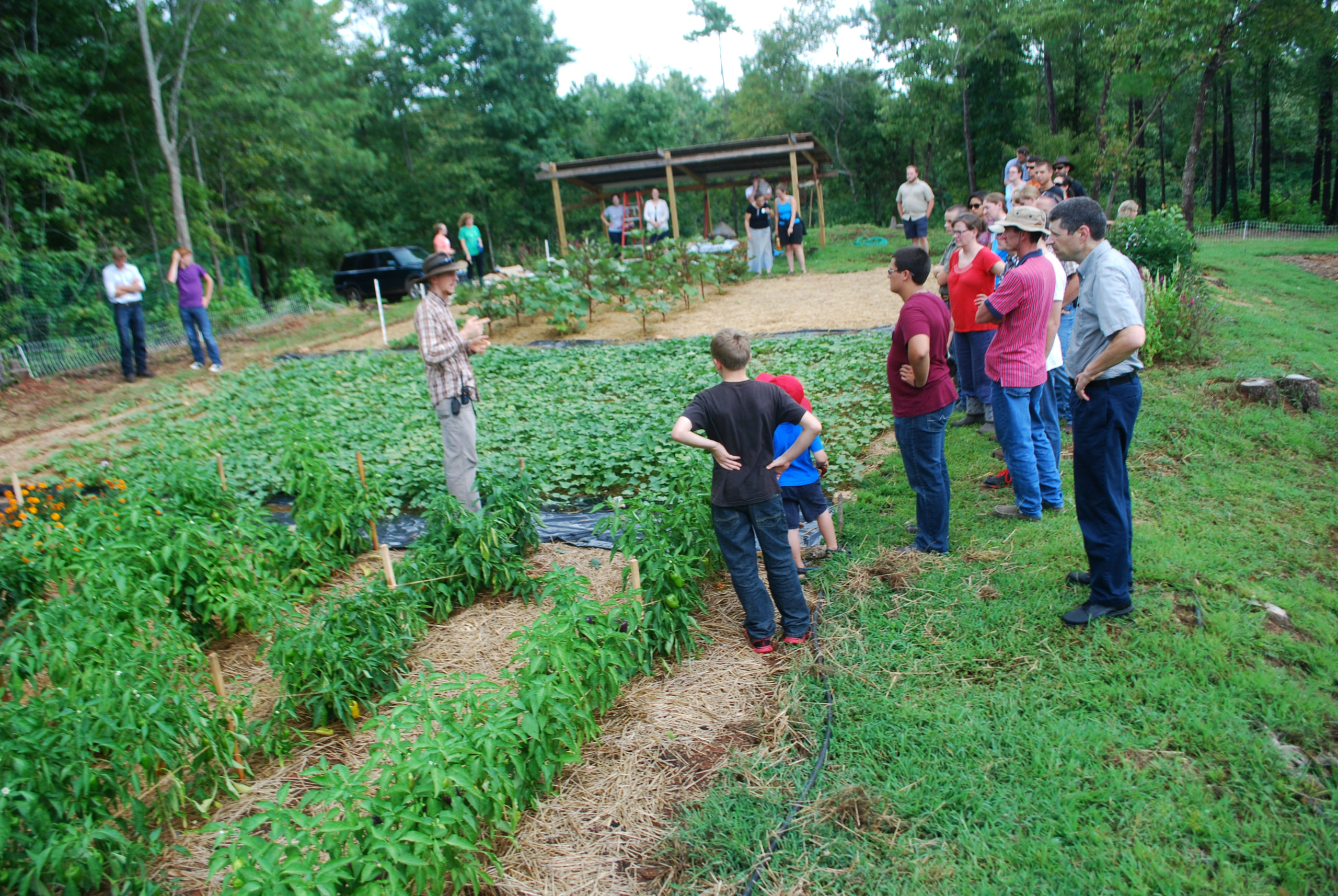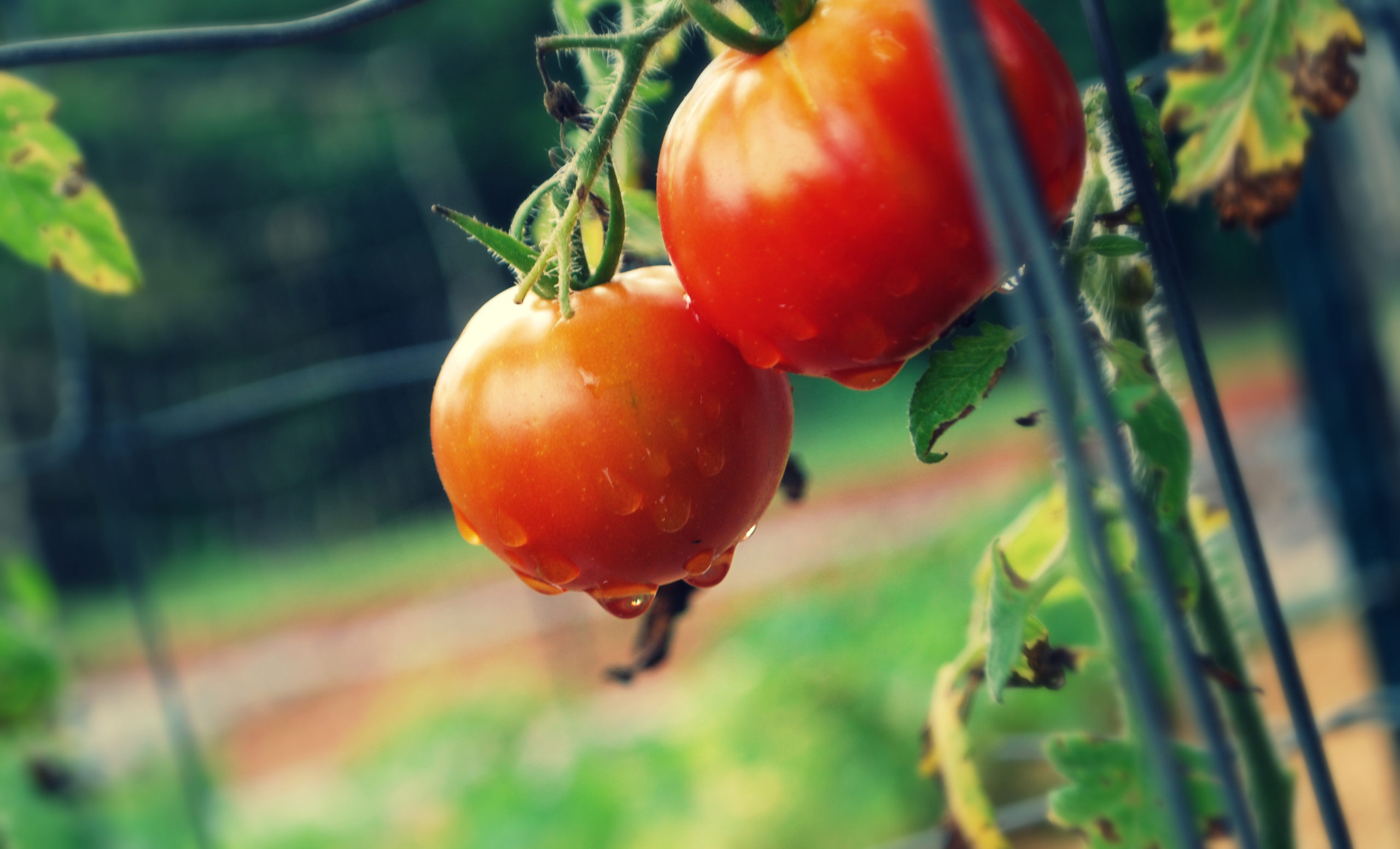
Many people, especially in the organic movement, often refer to land as having ‘life’. Obviously much of this comes from earth worship and the idea of ‘Mother Earth’. Others, coming from an industrial mindset, tend to view land as a growing medium used to hold plants in place while they feed on chemical fertilizers. As Born-again farmers, we don’t need to decide which side we agree with. Instead, we need to go back to the Scriptures and see what God says about land. Instead of giving you my own opinion up front in this post, I would like to throw out a discussion question and try to get you to think before I give you my thoughts. Here is the question:
In regards to the land, do you think the Bible supports the idea that it should be treated as something living, or non-living? Why? How does this impact our management of the land?
This is not a complicated question, but I would encourage you to try and base your answers purely on what the Bible says, starting with a blank slate. Don’t just try to find verses that support your current view. It’s almost impossible to do completely (I know) but just pray and try your best.
Please post your answers and thoughts in the comments. I look forward to reading and learning from your answers! In a few weeks I hope to share my own findings. Hopefully the result will be that we all sharpen one another.





This will be a very interesting study! I have just begun to look over some Scripture verses and I”ve already seen several verses which support a particular view. I’ll have to study in depth over the next couple of days. I’m looking forward to seeing the replies and finding out what you have concluded.
In Job it says “if my land cries out” as if it was alive, and in Romans 8:22 it talks about creation groaning, which seems odd for an inert substance but the land is not an inert substance anyway – it is a complex ecosystem of it’s own made up of many parts, some living and some not living but dependent on each other for a healthy land. God has created a seemingly simple substance the soil (dirt) and yet he has breathed into it a richness that can sustain, cleanse and nurture life. That seems to me to be a good enough reason to respect the systems he has created and to try and find the balance within that
I have found that the secular world, including environmentalists, organic growers (non-Christian), and pagan/wiccans, can take a truth that originated with the Lord and corrupt it for their own purposes. Some may be worshipers of the Earth Goddess and strive to Save the Planet, but we are called to care for the earth as God’s stewards. It’s true that we Christians should care about pollution, depleted soils, etc., but our mandate is from the Lord and we are stewarding on His behalf.
Here are some verses of Scripture that, I think, show the land to be a living thing:
Leviticus 20: 22 “Ye shall therefore keep all my statutes, and all my judgments, and do them: that the land, whither I bring you to dwell therein, spue you not out.”
Leviticus 26: 33b-35 Because of disobedience, the Lord says, ” …and your land shall be desolate, and your cities waste.
34 Then shall the land enjoy her sabbaths, as long as it lieth desolate, and ye be in your enemies’ land; even then shall the land rest, and enjoy her sabbaths.
35 As long as it lieth desolate it shall rest; because it did not rest in your sabbaths, when ye dwelt upon it. (The land is to rest and enjoy the sabbath period).
Lev. 18:25 And the land is defiled: therefore I do visit the iniquity thereof upon it, and the land itself vomiteth out her inhabitants.
That is what I have come up with so far. Joanna comments have included some excellent verses and I’ve enjoyed her thoughts! I will continue my study…
I am new to your blog, but find it encouraging… along with this post. Scripture study does support a stewardship of the land, and both parities above have stated some wonderful verses. Truly, if in our cultivating we honor the Word, we will be blessed and I look forward to reading some more!
I have just begun to study this idea and after reading the scriptures I have found the most convincing argument for the land being a living thing is that it should require a sabbath of rest. I sabbath of rest surely allows the life within the soil to be replenished. Leviticus 25. 2-5
Soil is a complex mixture of organic and inorganic substances which when in good heart produce abundant food. If over worked or misused it must surely die.
I have recently been having a lot of conversation with Christian friends of mine about what will happen in the near future when being able to obtain cheap fuel becomes a thing of the past. Almost to a man they seem not to be concerned because they believe that clever men will invent some new fuel with which they can still run their cars, tractors etc. While working alone in our community garden yesterday I sat and read my bible while the kettle boiled. I asked the Lord to show me a scripture to share with them. I was guided to Proverbs 12 vs 11.
“He who works his land will have abundant food, but he who chases fantasies lacks judgment.”
Pretty uplifting I think!
This is an interesting question for us. Considering what we have hoisted upon us from the much of the world, from ‘natrualism’ to Disney movies and even Indian religion, it is easy to see why we would initially conclude that the earth is ‘alive’, meaning the ground and all the plants of the earth. But other than some proof texting, I don’t think we can conclude that the earth and plants have life in them like the other creatures of creation.
We can start in creation in Genesis 1:11-12 “And God said, Let the earth bring forth grass, the herb yielding seed, and the fruit tree yielding fruit after his kind, whose seed is in itself, upon the earth: and it was so. And the earth brought forth grass, and herb yielding seed after his kind, and the tree yielding fruit, whose seed was in itself, after his kind: and God saw that it was good. ”
Letting the earth bring forth grass, etc., doesn’t imply that it has a life and power of it’s own to grow and sustain things. It is the Lord who causes things to grow and sustains all things. It is He who brought it forth from the earth.
Looking in Genesis concerning the other created things, in Genesis 1:20, Then God said, “Let the waters teem with swarms of living creatures, and let birds fly above the earth in the open expanse of the heavens.” sand in Genesis 1:24 Then God said, “Let the earth bring forth living creatures after their kind: cattle and creeping things and beasts of the earth after their kind”; and it was so.”
As the creatures of the sea and the creatures that move along the ground are created, they are called living creatures. The plants are not given that description. Then of course in Genesis 2:7…. Then the LORD God formed man of dust from the ground, and breathed into his nostrils the breath of life; and man became a living being.
The scriptures reveal a distinction between the plants of the field and the living creatures, and also reveals a big distinction between the beasts of the field and man.
We can also look at the flood account…… Genesis 7:4 “For yet seven days, and I will cause it to rain upon the earth forty days and forty nights; and every living substance that I have made will I destroy from off the face of the earth.” But then the living substance is described in Gen 7:23 “Thus He blotted out every living thing that was upon the face of the land, from man to animals to creeping things and to birds of the sky, and they were blotted out from the earth; and only Noah was left, together with those that were with him in the ark.”
Every living thing was man, the animals and creeping things, to the birds. No mention of plants as part of every living thing.
The plants are given to sustain the life of man and beast, Genesis 9:3 “Every moving thing that is alive shall be food for you; I give all to you, as I gave the green plant. And Psalm 104:14-15 “He causes the grass to grow for the cattle, And vegetation for the labor of man, So that he may bring forth food from the earth, And wine which makes man’s heart glad, So that he may make his face glisten with oil, And food which sustains man’s heart.”
We can find it’s not only food but shelter in Daniel 4:12 “Its foliage was beautiful and its fruit abundant, And in it was food for all. The beasts of the field found shade under it, And the birds of the sky dwelt in its branches, And all living creatures fed themselves from it.”
But we do not live on the plants of the earth alone. Deuteronomy 8:3 “He humbled you and let you be hungry, and fed you with manna which you did not know, nor did your fathers know, that He might make you understand that man does not live by bread alone, but man lives by everything that proceeds out of the mouth of the LORD.” It is the Lord who gives us life and sustains us.
The scriptures reveal also that life is determined by blood in the created thing. Lev 17:14 “For as for the life of all flesh, its blood is identified with its life. Therefore I said to the sons of Israel, ‘You are not to eat the blood of any flesh, for the life of all flesh is its blood; whoever eats it shall be cut off.’ And Deuteronomy 12:23 “Only be sure not to eat the blood, for the blood is the life, and you shall not eat the life with the flesh.
When the Word of God identifies what we would call life in a plant, it generally calls the plant “green”.
Isa 15:6 For the waters of Nimrim are desolate. Surely the grass is withered, the tender grass died out, There is no green thing.
Job 8:12 “While it is still green and not cut down, Yet it withers before any other plant.
Also note that when a plant, as we would say, “dies” the scriptures use “withered” generally.
Jon 4:7 But God appointed a worm when dawn came the next day and it attacked the plant and it withered.
Mat 21:19 Seeing a lone fig tree by the road, He came to it and found nothing on it except leaves only; and He *said to it, “No longer shall there ever be any fruit from you.” And at once the fig tree withered.
Though I suppose there are many things that influence us, the word “Natural” gives a distorded impression when we use it to describe God’s created things.
I am sure this will be met with protest, but words influence thought. When you study the words “nature and natural” in the scriptures, you will find no reference to creation being nature as we know it. These words are used to identify what comes out of something. For instance, the nature of man and the nature of God, or the natural man vs the spiritual man.
Looking up the meaning and history of the word nature, it has had a history of changed meaning over time. It’s original meaning, as well as proper Greek meanings, is; the character of something, or its expected qualities. Put another way, it means what comes out of, or what you would be expected out of something. What’s expected from God, or His nature, is righteousness and justice to name a few. The nature of man, or what comes out of man, is sin and disobedience towards God. The scriptures uses “natural” in regards to created things only in describing what is expected to come from an individual thing. The natural branches from a vine, or a tree’s natural fruit, etc. The nature of an apple tree is that apples will grow on it. It is natural for a bean seed to produce a bean plant, or a bee to produce honey. Yes, we can say it’s natural for a tree to sprout out of the ground from an apple seed, and for grass to grow in the pasture, but to call all creation nature has some implications to it.
When you say nature, reflecting on it’s true meaning, gives an impression that it is something that sprouts up out of the earth on it’s own. It needs no intervention, it just happens. It has a “life” of it’s own. It doesn’t need God.
I think our view of the earth being “alive” has been influenced in part by creation being labeled as nature. Again, nowhere in the scriptures is creation called nature.
One religion that springs from “nature” is Naturalism. Naturalism is the viewpoint that all of creation is just being operated by some “natural laws” without any intervention and nothing else exists outside of itself. It’s just “nature’ at work on it’s own. Naturalism concludes that the earth is “alive” and determines it’s own destiny, it has a will of it’s own. Out of all this comes mother nature instead of Father God which implies mother nature gave birth to all things instead of Father God speaking them into existence.
Rather long, incomplete, and I may not have put it together well, but the earth and that which sprouts from the ground isn’t alive like the beasts of the field, the birds of the air, creatures of the sea, or man. They are instruments, for the lack of a better word, that God uses to sustain the life of man and beast on this earth and to carry out is perfect providence at all times.
I just read this discussion question for the first time.
I really appreciated the things Dan shared, including the Biblical distinctions between “green plants” and “living creatures,” and also his observations on “creation” vs. “nature.”
The first Scripture that came to my mind upon reading this question was Genesis 2:7 – “And the LORD God formed man of the dust of the ground, and breathed into his nostrils the breath of life; and man became a living being.”
Adam was formed from the dust of the earth, which was lifeless, until God breathed life into it/him.
Though the land itself is not living, the soil which supports growth is chock full of living creatures. I think Joel Salatin said something to the effect of, “A handful of healthy soil contains more living creatures than there are people on the face of the earth.” So it could boil down to semantics, and what is your definition of “land.” “Land” sometimes refers specifically to acreage, and sometimes refers just as much to the people as the landscape. Likewise “world” and to a lesser extent, “earth” can include people or refer primarily to the globe itself.
Even if the land is not living, it is a gift from God, and as His stewards, we are to manage it wisely, to bless people and take care of God’s creatures.
What a wonderful question. My first thought was that God formed Adam from the dirt. Then I thought of the times where the Word says that the ground cried out. Other scriptures came to mind also, such as, the commands about letting the land rest. Why would something dead need to rest? If you think about the mention of the manure pile (dung heap) in scripture you wonder why you would feed anything dead?
We are coming out of a severe drought here, thanks to the rain we have had recently. There had been no growth for quite some time. The pastures had nothing in them for the animals to eat and the hay fields had not been harvested. The yard was crunchy and brown. When the rains came the grass and other plants sprang to life. It was (and is) amazing to watch. A miracle.
We see every day that life comes from life. God breathed into Adam’s nostrils and gave him life and it’s the same today when a child is born. Any living thing comes from life. And it must be nurtured and fed. And it must rest.
Psalm 145:16 “Thou openest thine hand, and satisfiest the desire of every living thing.”
Great discussion! I would offer Luke 19:40 “I tell you,” he replied, “if they keep quiet, the stones will cry out.” and Psalm 19:1 “The heavens declare the glory of God;
the skies proclaim the work of his hands.
2 Day after day they pour forth speech;
night after night they reveal knowledge.
3 They have no speech, they use no words;
no sound is heard from them.
4 Yet their voice[b] goes out into all the earth,
their words to the ends of the world.”
I think Dan makes some interesting points but I would disagree with him on the concept of “natural law”. It is a concept dating back to Aristotle, and is based on the very Greek definition he offers for the word “nature” – the inherent character or essense of something, being expressed or worked out. So the natural law of gravity, or planting in season, for example, are the expression of the inherent character of the universe that God created. The natural law is God’s law that did not require special revelation, because it can be observed directly in the creation.
I think it would be difficult to find an answer to this question in Scripture, because we think so differently now than the authors of the Bible did. The idea of spirit (life) and matter being totally separate comes from Plato, not from the ancient Hebrew thought process. You often find the Bible referring to “bowels of compassion” or “as a man thinks in his heart, so is he”, blurring the distinction modern Western thinkers draw between mind and body.
Everything God created is the outpouring of His love, His life and His creative energy. The soil is a teeming mass of living organisms digesting organic and inorganic material. To someone without a microscope, it certainly behaves as if it is alive.
Furthermore, according to Genesis 2, man was an essential part of the plan for the Garden, which required a steward:
Now no shrub had yet appeared on the earth[a] and no plant had yet sprung up, for the Lord God had not sent rain on the earth and THERE WAS NO ONE TO WORK THE GROUND .6 but streams[b] came up from the earth and watered the whole surface of the ground. 7 Then the Lord God formed a man[c] from the dust of the ground and breathed into his nostrils the breath of life, and the man became a living being.
8 Now the Lord God had planted a garden in the east, in Eden; and there he put the man he had formed. 9 The Lord God made all kinds of trees grow out of the ground—trees that were pleasing to the eye and good for food. In the middle of the garden were the tree of life and the tree of the knowledge of good and evil.
……..
15 The Lord God took the man and put him in the Garden of Eden to work it and take care of it.
(emphasis mine). So God created the earth and the plants of the earth in relation to humans – with the intention of humans having a crucial role. And how do you have a relationship with something that is not alive?
The Land, the Earth, the Soil – there are multiple meanings to these words and whether or not it is “alive” in the sense that a cat or a pear tree are alive, we are to treat the land as if it were alive.
I have to second Dan’s point in Genesis of God creating man out of dirt. Our God is an awesome God and His words and His deeds are all done for His glory. Creating life from something that is lifeless is just like Him. The point of God creating man out of the soil is partly to show His omniscience. He knew that man would fall in the garden. He knew that he was going to have to banish them from the garden. After sending them into the wilderness He sentenced them to the perfect lesson of having to work the land without God growing things for them. It was an amazing hands-on lesson to show them, “Cursed is the ground for your sake; In toil you shall eat of it all the days of your life. Both thorns and thistles it shall bring forth for you, and you shall eat the herb of the field. In the sweat of your face you shall eat bread till you return to the ground, for out of it you were taken; for dust you are, and to dust you shall return.” Genesis 3:17a-19.
It is a dangerous thought for us look on the dirt as if it is alive. It is part of us because we were created out of it but that does not mean it is alive. It contains living organisms but that does not make it ‘alive’. It contains the essential minerals we need, or should contain, to grow herbs and fruit for food and trees to provide building materials but that does not mean it is alive. It is part of the beauty and grandeur of God’s creation that through something lifeless we grow things that are essential to our life. To say that the soil is alive is to start the train of thought that life comes from the soil into the plant and then into us and is returned when we return to the soil. This logic is not only faulty but denies the creator of His glory.
I believe we need to examine the semantics of this discussion because many of the scriptural references have been made in English, which is not the original language. Additionally, our understanding of these terms can differ today from when the English translators did their work.
For example, the Hebrew word “erets” that is translated as “earth” in Gen. 1:11 is tricky in itself. Its literal translation is “be firm” which then can be translated by context as country, earth, field, ground, land, or even nations. My point is let’s be careful about being dogmatic based on the English translation.
Therefore, I agree with Nat that Noah’s question is a semantical one in that we may not know what he means by “land” when he asked his question. Do we understand it to mean soil? Or could it be real estate? Or how about a geography? Land could even mean an ecosystem.
Do we come up with an answer to his question of vivacity if we pick one of these legitimate definitions of land? Take soil, for example. At its base, soil is some combination of silt, sand and clay. But, it also has many organisms that exist among the three elements. Does soil become living because there are nematodes in it? Does a house become living because people live in it? Is that a logical comparison? One can say that a dog is living, yet it has component parts that are also living, such as skin cells. Does the living cell make the dog a living thing or vice versa? Do fungi in the soil, which are alive, cause the soil to be alive in its unified form? This can be heady stuff if we let it.
My second point is to caution against pointing to biblical anthropomorphisms as proof that the land is a living thing. Hebrew can be considered a pictorial language (where English is a literal language) and often uses simile, metaphor, word pictures, figurative language and anthropomorphisms to convey complex ideas. Is our Heavenly Father really “living water”? Of course not, God the Father is spirit and not “in” His creation. However, Hebrew uses this metaphor to help covey a particular characteristic of God. Therefore, I’m not confident that God intended us to understand “groaning” and “declare” in the cited passages to be a proof that His creation is living.
Okay, let’s say that the “earth” of Gen. 1:11 means either soil or land. The verse tells us that God commands, “Let the earth sprout vegetation …” We have to examine the grammar to help us have some insight into this process. The verb “desah” is translated in the New American Standard as “sprout” and “bring forth” in the King James. But the point is that the verb stem of the Hebrew used is technically known as Hiphil, which is causative active. One could say that this grammar indicates that the soil is doing the life giving to the plant, or causing the plant to come forth from itself. I give this qualification, however, that God is the creator and life giver, and in this case, I believe, is commanding by fiat that the earth to bear living green things as His instrument.
Now, after six paragraphs, I haven’t even attempted an answer to Noah’s question. Like Brenda, I agree this requires some careful study and prayer. Because I believe an important reason to better understand God’s creation is that it can help us learn more about Him. Secondarily, as a farmer, it has direct implication for me as I try to be a biblical steward of the land He has graciously extended to me. Whether I believe the land is living or not may not change my attitude toward it any more than if I view the land as a gift from the greatest Gift Giver. I honor the Gift Giver by honoring the gift and will work to make it give a return, as in Christ’s parable of the talents in Matt. 24.
Is the land living? That’s a question answered by another question, “What constitutes life for things other than man?” So as not to be seen as copping out on the question, I view the “land” from a more holistic standpoint and see it as an ecosystem. With that in mind, I would tend to see the land having living characteristics. An ecosystem has component parts that are living (flora, fauna, man). An ecosystem has both a respiratory system (exchange of gases) and a circulatory system (hydrologic cycle) with its component parts dependent on these. It’s component parts also have their own micro life cycles – plants and animals arise from the elements, flourish, and then return to the elements only to become part of the process again (compost anyone?).
Though we are subject to the effects of the post-Edenic curse, the land is, by God’s design, an environment within which He knowingly placed man to live and be fruitful. I have to believe that I need to work with the land knowing how God created this special gift to function healthfully and not simply as a resource for my needs. Now, we can debate the meaning of the word “dominion” till the cows come home, but I don’t believe dominion includes ownership, but rather means stewardship.
Whew, where did all that come from? Guess I’ve been pondering this for a bit.
In Him,
Dan Grubbs
Hebron Acres
Holt, Missouri
“All plants, animals, and people come from the earth. It is an amazing thing that dirt can produce all kinds of plants, trees, fruits, vegetables, and flowers. These plants in turn produce animals and people. Our flesh, muscles, body organs, nerves etc. all come from dirt! There is not one bit of us that will not compost. God designed the ultimate recycling program model. He used dirt and water to create living things. When these have fulfilled their usefulness they convert back to dirt. Today we have a major waste problem because we have not followed God’s example. There is an enormous amount of plastics, glass, and metal that does not compost back to their original state. Therefore they have to be hidden in the ground to create problems for future generations. Imagine what the world would be like if plants, animals, and people would not decompose. The world would have shut down long ago.”
-Excert taken from: http://www.biblicalresearchreports.com/farming.php
Makes it seem there is life in the Land to be able to be what created life, what sustains life and ultimately where our bodies end up. Also, added to that would be where the Bible says, “…the earth moans and groans…” (My paraphrase)…. Sounds like there is a certain type of “life” in the Land that of which, as mankind, we are Commanded to care for and nurture the Earth(land).
Many things has been spoken on the topic.I also really appreciate Dan and others for a job welldone.I believe with these so far,it has been evidently visualised that land is a living thing.
I have nothing more to say for many has been said already.